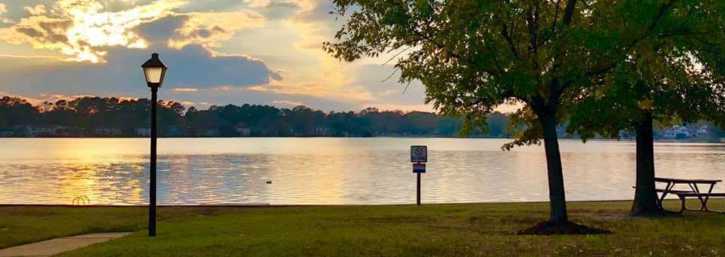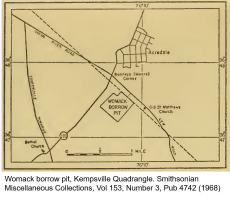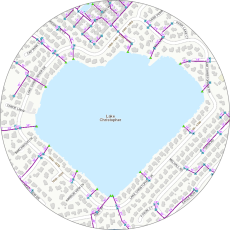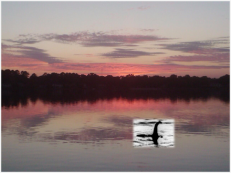Lake Christopher
HISTORY
Lake Christopher is a man-made lake dating back to the 1960's. Before it existed as a lake the land was part of the Ozment farm for many years.
By the mid-1960’s a portion of the farm was being quarried for sand and gravel to support construction of Interstate 64. The exact date and circumstance of the transition from dairy farm to borrow pit is not known, but the quarry, known as the Womack Sand and Gravel Pit, was also the site of geologic research and appears in the reference lists of many scholarlily articles. Our street names Quarry Lane and Quarry Court pay homage to this part of the Lake’s history.
We also do not know the date or other details of the pit’s closure and sale, but we do know by 1974 the lake was established, and both the lake and the surrounding area were in the possession of The Christopher Development Company. Home construction was under way, and the models at Ships Landing opened in 1975.
We’re always looking to fill gaps in our community's history.
Contact the webmaster if you discover any bits!
STORMWATER
Lake Christopher is designated a privately owned, city maintained stormwater management facility (SWMF) within watershed 12. In its role as an SWMF, it provides storage for stormwater to prevent flooding when it rains. The lake is fed by springs, as well as 14 storm drains which empty directly into the lake.
Lake Christopher discharges to a drainage channel via a pipe located at the southern tip of the lake at Christopher Beach. The drainage channel, or Brigadoon Lake #7, can be seen behind some homes on Brookfield Drive and in Christopher Woods. The lake's water level is set by a weir at the end of the drainage channel. The weir is followed by a culvert under Lynnhaven Parkway that discharges to another drainage channel and eventually to Stumpy Lake.
WATER QUALITY
While suporting stormwater management is an intended function of the lake, the water these storm drains convey often contain pollution from street runoff, and excess nutrients like nitrogen and phosphorus from the surrounding watershed. All plants, including algae, feed on these nutrients which come from from fertilizers, biomatter, etc. An excess of nutrients in the lake, increased temperatures and water column stability in warmer months, as well as the low flushing rate of the lake, contribute to algae blooms.
For this reason residents need to be aware of over fertilizing, and to make sure they are properly applying fertilizer so excess won't end up as lawn runoff into the lake. Residents should understand the maximum amount of fertilizer their yard can absorb, and allow time for the fertilizer to soak into the soil before pending rain events.
Samples taken at the three community parks.
2022-07 Report with limits explained.pdf
Adobe Acrobat document [854.1 KB]
visitors since 21 May 2022 | updated 01 Aug 2022
The Legacy Newsletter
Calendar
- Tues, Aug 6, 2024 National Night Out
- Mon, Aug 19, 2024 LCHA Board Meeting
- Mon, Sep 16, 2024 LCHA Board Meeting
- Sat, Oct 5, 2024 Fall Community Yard Sale
- Mon, Oct 21, 2024 LCHA Board Meeting
- Mon, Nov 18, 2024 LCHA Board Meeting
- Mon, Dec 16, 2024 LCHA Board Meeting
Meet Our Advertisers
Please email the webmaster if you have any comments or suggestions for the site.











